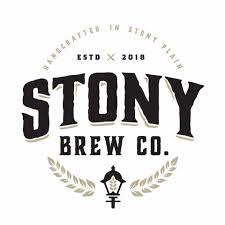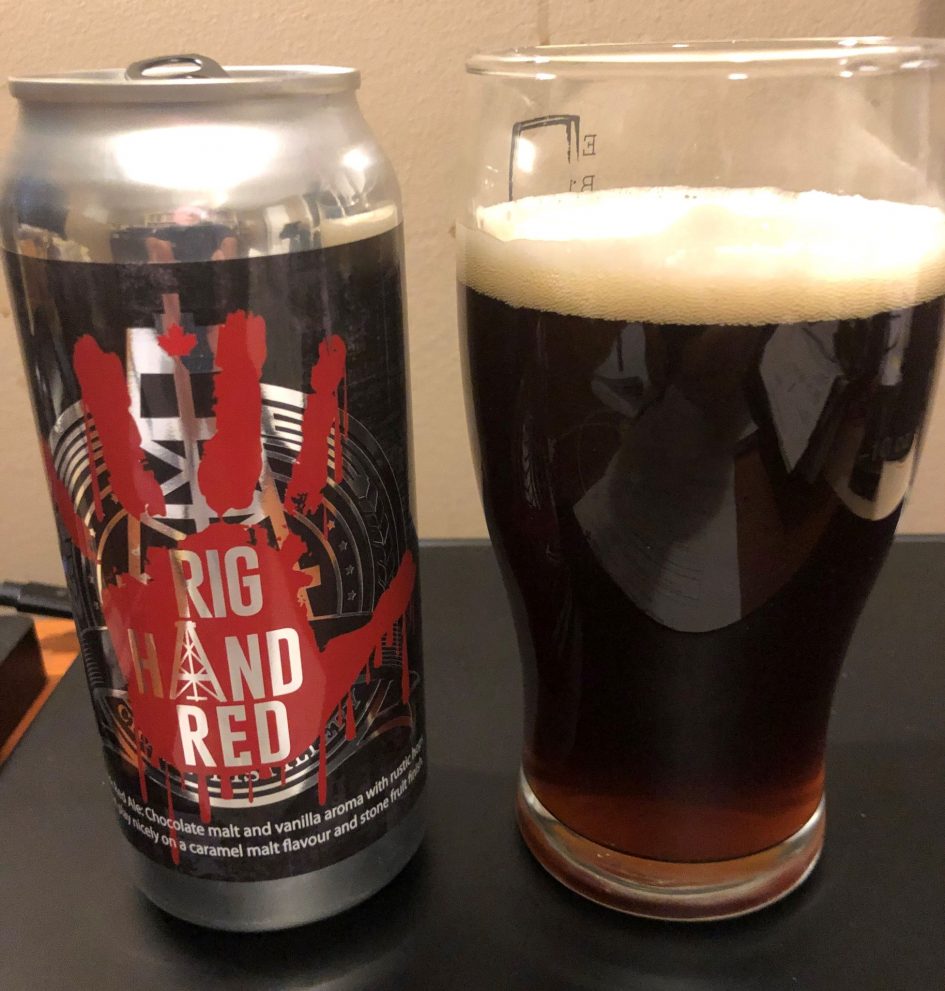Most followers of craft beer know about nano-breweries, the ultra-small one-person operations producing homebrew-size batches. How many of you knew that for the past two years there have been, not one, but two nano-breweries quietly operating in the Edmonton area? I decided it was time to draw our attention to these decidely under the radar breweries.
The tiny operations in question are Stony Brew Co. in Stony Plain and High Country Brewing in Nisku. Both have been quietly selling beer to select clients since 2018. I made them the subject of my most recent CBC Radio beer column. You can listen to the full column here.
Both are one-man operations. Heavy duty mechanic Landon McCarthy is behind Stony Brew, while retired HVAC technician Angus Monro is the driving force behind High Country. The two have a lot in common. Both are running with 1BBL brewing systems – basically producing a couple of kegs at a time. Both hand deliver their product to customers. In McCarthy’s case that included driving growlers around to loyal customers during the COVID-19 lockdowns. Both were avid homebrewers which is what got them thinking about opening a brewery. Both see this as much as a passion than a business. Both have a trades background which helps them manage technical and mechanical issues by themselves. McCarthy is still at his day job while Munro recently retired, but was still working full-time when he first opened the brewery.
There are also differences. For McCarthy, the nano-operation is a first step toward a bigger plan. He and his family (his co-owners) are working on building a full size brewery with tap room just on the edge of downtown Stony Plain on land owned by his father-in-law. That brewery will be 10BBL with 10BBL and 20BBL fermentation tanks and a small canning line. McCarthy estimates the new brewery will be “15 times larger than what I am doing now”. Even at that size, Stony Brew will still be a small operation. “We are definitely community driven”, says McCarthy. “Distribution will be within 100 km with a strong focus on the tap room”. At the moment his beer is only available in growlers. He hopes to have the new brewery open late 2021.
Monro also has some thoughts about expanding, but not nearly at the scale McCarthy is talking about. He is considering some options to allow him to reach 3 to 4 HL per batch, so roughly double what he is doing now – still clearly in the nano zone. “I like the scale where I can do everything and be self-sufficient,” says Monro. His other ambition is to purchase a better canning line. His current one-head canner requires him to touch every single can four times to bottle and label it – quite the operation. He currently serves seven to eight accounts in the Nisku/Leduc area and likes it that way (although a recent stop to Sherbrooke Liquor found cans of his core beer on the shelf).

While they come to their beer from different directions, they are ending up in different places. McCarthy, considering the consumer base in Stony Plain, was originally considering more accessible styles. “At first I was worried about being approachable to meet the old boy clean lager crowd. But I found when I did tastings, I always found the beer that most resonated with people were either hop forward or bigger beer. I made a blonde ale but it was the least favourite”. So he shifted gears and now makes a wide range of styles, often tailored to the season. His biggest seller, however, is his Irish Red Ale – “We’ve sold a tonne. It is every second brew”.
For his part, Monro decides what beer to make based on what recipes he thinks work best and what he enjoys brewing. He has two core beer – High Country Pale Ale and Rig Hand Red – and releases one-time and seasonal beer when the mood strikes him. Like McCarthy, Monro reports that the Red Ale is his best seller.
The name of Monro’s red, Rig Hand, is not without reason. While McCarthy applied to get a license for his tiny brewhouse (which will become his pilot system), Monro does not have a manufacturer’s license himself. Instead, he works under Rig Hand Distillery’s licenses, brewing out of their space in Nisku. He pulls his brewhouse off shelves in the distilling room each brewday and dutifully packs it back up at the end of the day. Officially, this makes High Country a contract brewer, but the arrangement is not like your ordinary contract. The two companies have agreed to give Monro autonomy over the brewery and every aspect of the operation, from malt ordering to sales and deliveries, is Monro’s responsibility. In fact, Monro chafes when people dismiss him as a contract brewer. “I am involved in every step of the process. I design it. I brew it. I sell it. No other contract brewer does that.” He has a point.
Operating a nano-brewery is not the easiest jobs in the world. The freedom of being both your own boss and your own employees can be exhilarating. But when things go wrong, there is no one to turn to. Plus producing such small volumes means a lot more labour per litre, and the revenue potential is diminished compared to larger breweries. It is clearly a trade-off.
Stony and High Country show the different ways that being a nano can work. Stony is using it as a way to build profile and reputation while working on opening a full-size brewery, plus a way to keep his passion inflamed while he waits. High Country is a true personal passion project. Monro gets to do what he loves everyday. He is in a position to not have to worry about making money given his recent retirement – all he wants is to break even. And he can get satisfaction of doing more than puttering in his garage with his homebrew setup.
That is the life of a nanobrewer. It is not for everyone, but if it fits, it can really work.


November 20, 2020 at 5:20 PM
Rig Hand Red reminds me of Rig Up Red from another more established brewery.